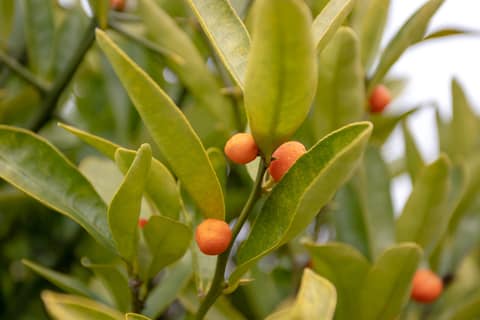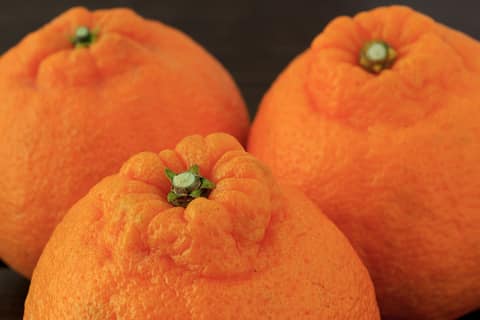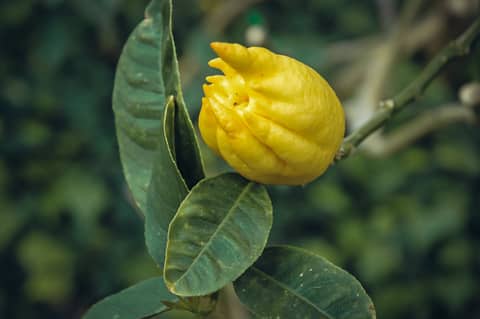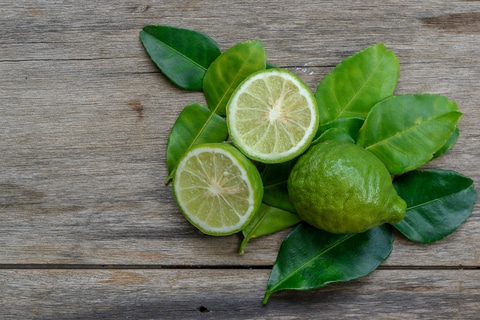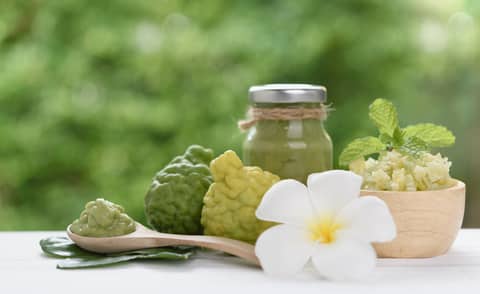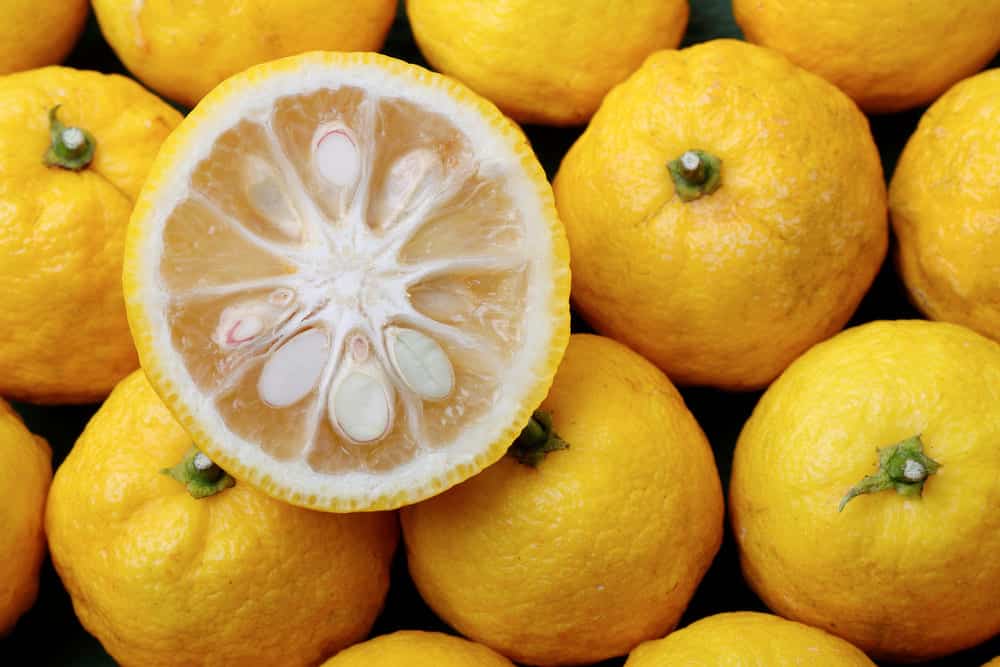
You must have tried yuzu if you ever visited a Japanese restaurant and ordered the ponzu sauce. Commonly known as Japanese lemon, yuzu is a citrus fruit.
Said to have originated from China, where it has been used for hundreds of years, it was later taken to Japan and Korea, where it became a widespread cooking ingredient.
Although it is mainly planted in Korea, Japan, and China, people in France, Italy, Australia, and Spain have started growing it as well, thanks to its growing popularity and amazing health benefits.
Yuzu is packed with seeds and has a sour taste. As far as the taste and smell of yuzu is concerned, it has an acidic and sour taste with an intense fragrance. Yuzu is also used for culinary purposes and is quite popular in Japanese cuisines.
It is one of the very few fruits in the citrus family which can hold its flavor even against high temperatures.
Generally, yuzu has uneven skin and is available in green or yellow color. Of course, like most other fruits, its color usually depends on the ripeness level. Yuzu has a sour taste, but a sweeter version, known as yuko, is also available in Japan.
You may be surprised to find out that yuzu is also used for making cakes and marmalades.
Yuzu Substitutes
As mentioned earlier, yuzu is not planted in all regions of the world. If you live in a European country, the chances are that you won’t be able to find it, which is why you may look for yuzu substitutes.
With this article, we’d share some of the best yuzu substitutes that you can use instead.
1. Meyer Lemon
Otherwise known as sweet lemon, Meyer lemon is a popular variety of lemons and a great substitute for yuzu. These lemons tend to be sweeter, and a bit larger in size than lemons and are often used in desserts and drinks.
They are a hybrid variety of citrus that originated from China and were later introduced in other countries as well. These lemons have been around for over 100 years and are moderately sized with a slight orange tint in the peel.
In addition, Meyer lemons tend to have a sweet aroma with floral and herbal undertones. Their aroma and flavor resemble honeysuckle and thyme. Some people also eat the pith because it’s tender and sweet.
The peel is not as thick as lemons or other varieties of lemons. They have relatively more juice, making it an excellent option for drinks.
Meyer lemons can be added to salad and numerous desserts to add a refreshing flavor. You can also make lemon kosho, and these lemons are also perfect for making limoncello.
The acidity level of Meyer lemon is pretty light and doesn’t have a sharp tang.
Meyer lemons offer plenty of health benefits. They are a great source of potassium, which helps regulate your blood pressure and heart rate.
If your family has a history of heart problems and blood pressure, using these lemons is the best thing you can do for yourself. They contain many nutrients that are essential for your body, including vitamins, fibers, and other minerals.
The peel of Meyer lemon contains pectin, a type of soluble fiber which slows your digestion rate and suppresses your appetite while preventing diabetes by stabilizing your blood sugar level.
Still not convinced of its benefits? Using Meyer lemons regularly has also been associated with stronger bones and teeth, and it also benefits your liver. Apart from that, consuming Meyer can also relieve sore throat.
2. Procimequat
This fruit delivers a flavor that’s a combination of orange, lemons, and celery. It can be added to salsa for seafood and plenty of other recipes too. In addition, it makes a perfect garnish for martinis.
Although procimequat is quite easy to grow, it is not grown commercially in most regions of the world. As for the flavor, it has a herbal and citrus flavor, which makes it an excellent substitute for yuzu.
Consuming procimequat has shown great results for thousands of people worldwide. It contains a fair amount of antioxidants that reduce the impact of free radicals, thus preventing wrinkles, acne, and blackheads.
This is why it is also used to make cosmetic products. It’s also an excellent option for people who want to lose weight. Its high fiber content and low calories mean that you take essential ingredients while not taking lots of calories. Cool, isn’t it?
Furthermore, procimequat comes with all the nutrients to benefit your body, such as vitamins A, C, and E. It also has calcium which benefits your teeth and bones.
It’s also recommended for people with hair fall as vitamin C and antioxidants strengthen your hair.
3. Dekopon
The next substitute for yuzu on our list is dekapon. Dekapons are fairly large fruits with a refreshing appearance and sweet flavor.
They are known to be hybrid tangerines, which means that dekopon has the taste of orange crush mixed with preserved lime. Like most other substitutes on our list, dekapon could also be used for cooking purposes.
In addition, dekopon has a natural sweetness which makes it the perfect ingredient for desserts. For instance, it can complement sorbet, custard tart, and trifle pretty well.
However, people also add them to savory recipes, such as duck, eel, and carrots to add a tangy and sweet flavor.
4. Buddha’s Hand
Moving on with our list, we have Buddha’s hand. Its unique name may make you think that it’s not a fruit. However, its taste replicates yuzu better than any other substitute.
Generally, its flavor is similar to bergamot, but it might be lemonier and less strong. From desserts to pickles, Buddha’s hand finds its uses in many recipes. It has an amazing aroma and flavor, which can enhance the flavor of any dish.
Buddha’s hand also offers lots of amazing health benefits. It has been used as a treatment for pain relief for hundreds of years. It also expedites wound healing and treats swelling as well.
It is also effective for curing respiratory disorders. It’s also good for women who experience strong menstrual periods and also improves blood pressure.
5. Bergamot
Although bergamot is not as popular as other substitutes on our list, the fans of Earl Grey tea are likely to know about bergamot because it’s an essential ingredient. However, there are other applications and uses of bergamot as well.
It has an aromatic peel, but some people also feel the floral hints. It has delicious juice with a dense texture, which makes it a great choice for a variety of recipes.
Bergamot has the sourness of the lime and is bitter as well (it takes the bitterness from grapefruits). The peel is added to the broth to get a floral and herbal flavor.
In addition, it can be used for garnishing cocktails. As for the juice, it can be added to spicy soups, stir-fries, and salads. Many people also use it to make marmalade at home.
Although bergamot is not well-known, that doesn’t necessarily mean that it is any less beneficial. It is a natural skin cleanser and is primarily used in cosmetic products all over the world.
It effectively prevents bacteria and helps you get rid of oily skin and acne, glowing your skin. If you are concerned about the well-being of your skin, consider adding bergamot to your diet plan.
It also improves your immune system and is considered to be a natural remedy to treat cold, flu, and cold sores.
Aside from that, its nutrients also do wonders to your digestive system by reducing constipation, thus helping you digest your meal better. Bergamot also improves the blood flow inside your body and boosts your energy.
Finally, yet importantly, it contains an abundant amount of polyphenols that help regulate your body’s cholesterol and blood sugar levels.



